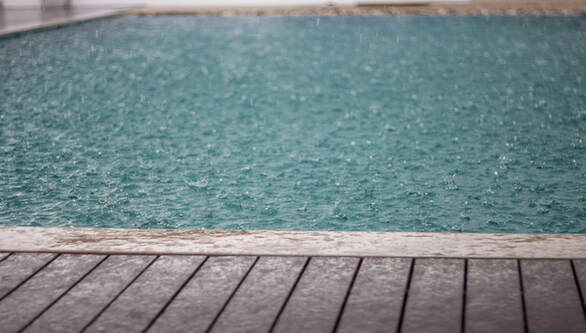|
Rainwater is acidic and involves the chemicals in the pool’s water. Rainwater can also change the pH balance and alkalinity level. Acidic rain can also make water corrosive, which can affect plaster and ceramic over time.
Here are some other factors on how rain may affect your swimming pool:
Rainfall Pool Maintenance Some recommendations on how to treat your pool before and after it rains are as follows:
0 Comments
Leave a Reply. |
Categories |


 RSS Feed
RSS Feed
